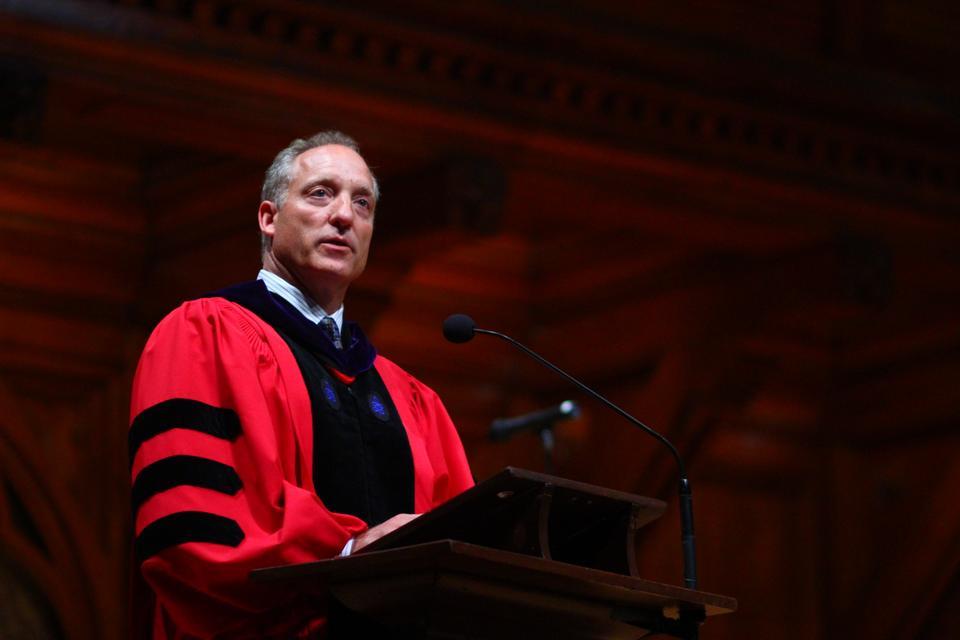
News
‘People Have Spoken’: Harvard Residential Advisors Vote Against Unionization

News
Jury Finds CAMHS Employee Melanie Northrop Not Guilty of Negligence in 2015 Student Suicide

News
HUA Problem Solving Team Has Yet to Convene After 2 Weeks

News
Privacy Breach During School Committee Meeting Could Explain Delay in Greer Contract Talks

News
Pro-Palestine Harvard Students Occupy Harvard Yard on First Day of Encampment
Modest Pay Bump Exacerbates Financial Worries Among Profs

Some professors are anxious about the financial future of the Faculty of Arts and Sciences after a recent announcement that they will receive a 1.5 percent compensation increase for the coming year, a bump that falls below the current of inflation and last year’s raise.
Government Department Chair Jennifer L. Hochschild said she and her colleagues are “annoyed” with the current financial situation.
“We would like to hire more faculty, we would like to have smaller sections, we would like better compensation,” she said. “There’s all kinds of things we would like to spend money on. Cognitively, we understand that that’s not possible because they’ve told us that, but emotionally it just doesn’t seem right.”
The relatively small increase—which, when adjusted for a 2 percent inflation rate, effectively amounts to a pay cut—is the result of budget difficulties FAS has faced this year, according to Dean of FAS Michael D. Smith.

“More than half of the FAS’s annual operating budget is funded from endowment distributions, and in the year ahead, we will experience zero growth in those distributions,” Smith wrote in an email. “Also, between strategic investments and ongoing support of our operations, we have all but exhausted our unrestricted reserve balances, which in the past have provided a modest financial cushion.”
In fiscal year 2016, HMC returned negative 2 percent on its portfolio, a loss that, together with other financial flows like the $1.7 billion HMC distributes to fund University operations, combined to an almost $2 billion drop in the endowment’s total value. FAS currently has “effectively zero reserves, according to Smith, putting further financial strain on its budget.
Both the modest pay increase and the poor endowment performance have concerned some professors.
Professor of Japanese History David L. Howell said the endowment has caused Faculty “frustration” and “disappointment.”
“As soon as I heard about the bad endowment I was pretty much resigned to a low raise. I was afraid there would be no raise,” he said.
Professors also said they were worried about how the fiscal shortcomings could hinder the ability of some departments to hire new professors. While Smith said that FAS is not currently expanding the size of its professoriate, Classics professor Richard F. Thomas said he remains concerned about merely replacing departed Faculty members.
“My greater concern for somebody at my career stage, particularly as I see colleagues retiring, is that we’re not really renewing at a sufficient rate to remain competitive with our peers in terms of tenure,” Thomas said. “If our competitors are not dealing with deficit and compensating their faculty at a much higher level than we are, it doesn’t take too much thinking to realize where that leaves us.”
History Department Chair Daniel L. Smail was also troubled at the prospect of future rate of Faculty hires given FAS’s current financial woes.
“I think we’re all very worried about what will happen,” Smail said. “We look purposely at the rate at which faculty have been retiring, departing faster than the rate at which we’re replacing them. Money is money, you can’t make it up.”
Smail also said he fears the modest compensation increase will have a larger effect on more junior faculty members in his department.
“I worry about younger people who are struggling to get by,” he said.
—Staff writer Joshua J. Florence can be reached at joshua.florence@thecrimson.com. Follow him on Twitter @JoshuaFlorence1.
—Staff writer Mia C. Karr can be reached at mia.karr@thecrimson.com. Follow her on Twitter @miackarr.
Want to keep up with breaking news? Subscribe to our email newsletter.
